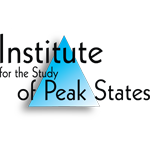May 2016
What are the 'medical' applications
05/13/2016
As the research director, I've sometimes been asked why our techniques are all about mental disorders and problems, instead of something more practical or useful like treatments for normal, 'real' diseases. Wouldn't it have made more sense to just do disease research and skip the psychology part? Wouldn't that have done a far better job of proving the model, with measurable results instead of all that wishy-washy emotional stuff? Read More…
Snake oil, or the real deal?
05/06/2016
When I give talks about subcellular psychobiology, I usually start with a survey of state of the art in my field, and follow up with the new breakthroughs that the Institute has discovered. But reasonably enough, I'm sometimes asked "where's the proof?" (To make this blog more interesting to you, just take a moment and think about this issue yourself - what objections immediately spring to your mind about all of this?) Read More…
Subcellular psychobiology is a 'disruptive technology'
05/04/2016
Historically, as a 'disruptive technology' is being developed, it starts small, usually solving problems that you can already do with existing techniques, albeit in a different way. (A familiar example is the iPhone that started an entire industry.) Over time the new technology advances, until it both replaces existing, more expensive or costly techniques, and also provides critically important functions that existing techniques simply cannot do at any cost. Even in the beginning, it usually has a few unique applications that existing techniques cannot accomplish. Over time, more and more of these unique applications occur. Read More…
Epigenetics, psychoneuroimmunology, and subcellular psychobiology
05/03/2016
If you are involved in the health field, you can quickly become overloaded by all the choices and techniques out there, be you a layperson, therapist, biologist, or physician. Every year there is more information, new diets, drugs, techniques, better technologies - the list is endless. Yet these approaches are not fundamentally new, but are rather incremental advances or combinations of existing ideas, concepts, and technologies. Only rarely over the course of a lifetime does a new idea or way of doing things fundamentally change our lives, or how problems are understood and solved. When something like this comes along, we call it a 'disruptive technology' (like the iPhone) or a 'paradigm shift' (like the idea that the earth goes around the sun) - they redefine how people work, live, or solve problems. Read More…

